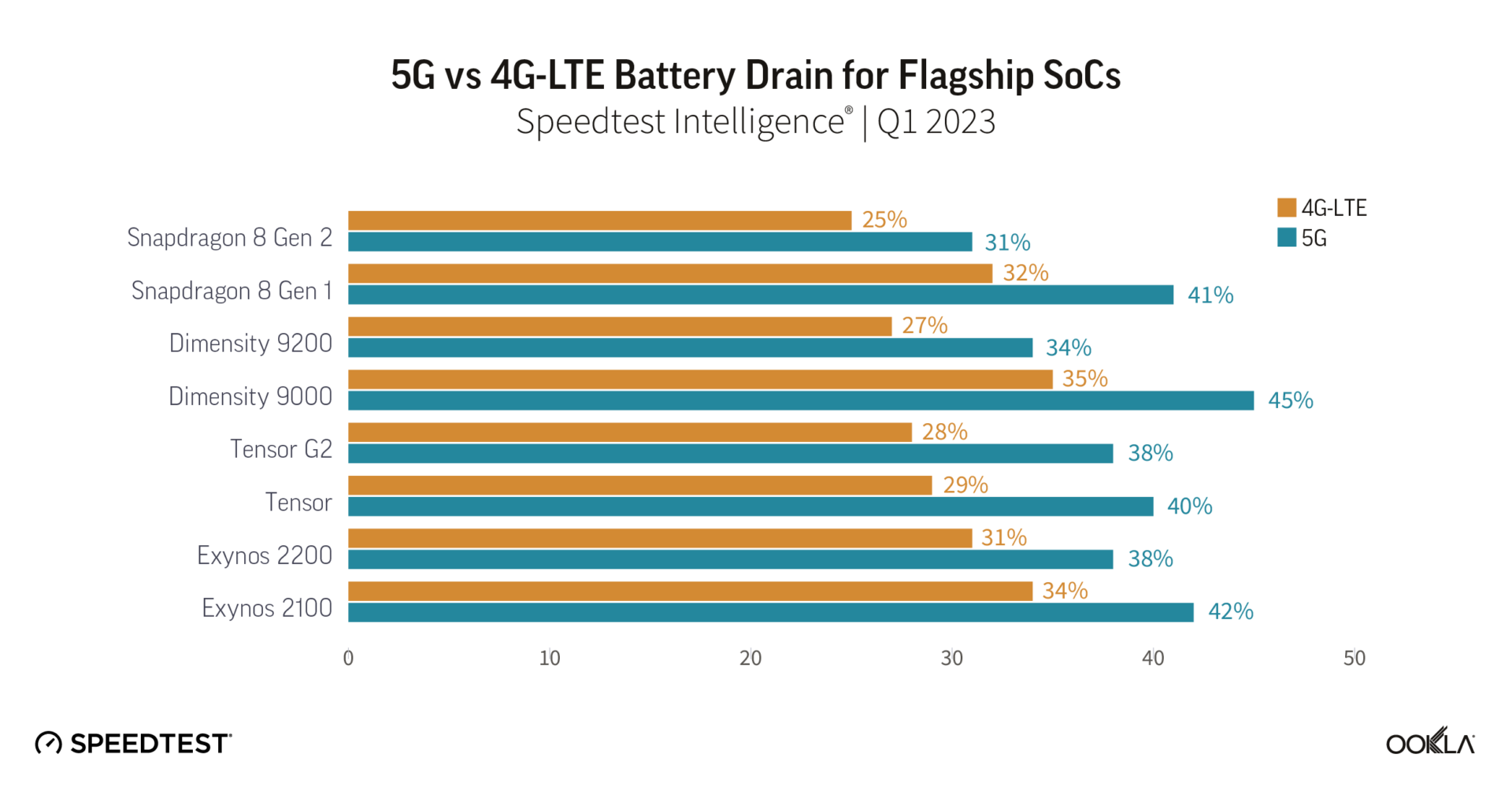- Internet speedtester Ookla found that using 5G internet on Android smartphones drains battery life faster than if users were on 4G-LTE internet.
- Ookla says that the speed of battery drainage depended on the hardware of the smartphones tested.
- It found that phones with next-generation Qualcomm Snapdragon silicon were less affected by 5G drain than those with older-generation Snapdragon chips.
For some time now, smartphone users have been concerned about speeds at which the latest generation of internet connectivity technology sapping their battery life.
Manufacturers such as Samsung have said that it is possible that 5G can drain battery life more quickly on its devices, than compared to 4G or LTE for example.
It explains this by saying that since smartphones will be connected to multiple internet sources at once – namely 5G, 4G, 3G, LTE, etc. the smartphone may get hot and the power may drain rapidly.
To answer the question and do away with the confusion around 5G connectivity and battery drain, internet speed tester Ookla has surveyed the cell life of thousands of users checking 5G speeds on its software worldwide.
Unfortunately, Ookla was only able to receive results from Android smartphones and did not publish any information on how iPhone devices handle the drain caused by 5G.
The study found that using 5G on your smartphone does drain your smartphone battery faster than if you were to use older generation technology, such as 4G or LTE.
5G can drain your smartphone’s power 11 percent faster than other connectivity technologies, with the general difference between six percent and 11 percent. However, the type of hardware your smartphone is running does make a difference, Ookla found.

Depending on the silicon your smartphone has, 5G can drain battery faster or slower, but generally, it does use more battery life than 4G.
Ookla says that Qualcomm’s Snapdragon chips are the most efficient Android system on chip (SoC), compared to other brands like Dimensity, Tensor and Samsung’s in-house Exynos chips.
Qualcomm’s Snapdragon 8 Gen 2 was found to be the most efficient, recording the lowest power drain due to 5G usage. A difference of about 6 percent compared to drainage when using 4G-LTE.
The Dimensity 9000 chip was the worst performer overall, seeing a drain of 45 percent using 5G. However, the first generation Tensor chip saw the biggest disparity, with 5G usage draining battery 11 percent faster than 4G-LTE.
Ookla says that concerned smartphone owners need not fear, as newer devices seem to be handling 5G connectivity better than older ones.
“While the gap in battery drain between 4G-LTE and 5G use does not appear to be closing over time, newer generations of SoC from Qualcomm, MediaTek, Samsung and Google all demonstrate battery efficiency gains over previous iterations,” it said.
“MediaTek’s latest flagship SoC, the Dimensity 9200 for example, recorded 34% battery drain when using 5G, compared to 45% for its previous generation, the Dimensity 9000.”
It suggests that if users are concerned about 5G power drain, they should consider upgrading to a newer device.
“For users with 5G-capable devices camping on 4G-LTE networks due to battery life concerns, an upgrade to the latest flagship smartphone (and SoC) and enabling 5G service will in some cases deliver comparable battery performance.”
Qualcomm’s Snapdragon 8 Gen 2 for example recorded a drain of 31% when using 5G, compared to 4% for the previous generation Snapdragon 8 Gen 1.

